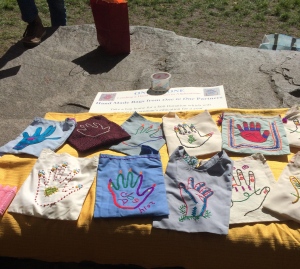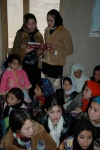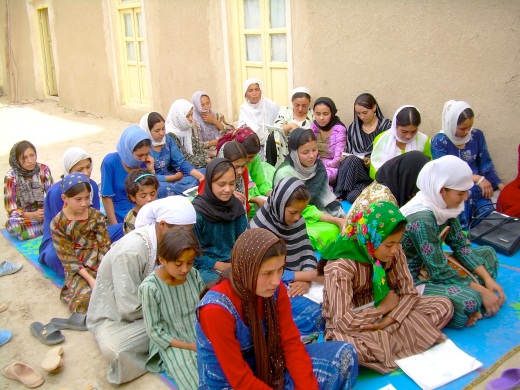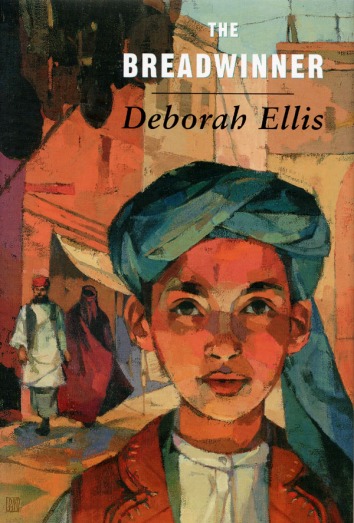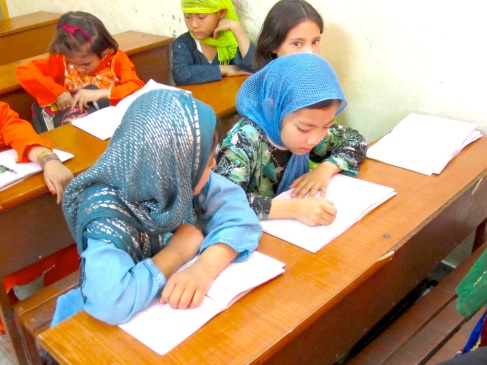Since the Taliban were ousted from power in Afghanistan in 2001, the country has made enormous strides in improving its education system. However, Afghanistan has been handicapped by years of war plus the surviving presence and influence of the Taliban, and falls behind other countries in Central Asia in schooling[1]. Consequently, Barakat’s schools in Afghanistan deal with unique problems and barriers to education, particularly for girls and women.
Afghanistan’s education issues started during the Soviet occupation in 1979, when Russia installed strict military, social, and economic reforms in the country and a resistance group, the mujahideen, formed in response. When the Soviet Union withdrew in 1989, they left the country in a state of civil war between the mujahideen and the new, Soviet-backed government of President Mohammed Najibullah. When the Taliban took power in 1996, they claimed that they would bring peace back to Afghanistan through Sharia (Islamic law). However, their interpretation of Sharia proved to be ultra-conservative and severely rigid. Many previously accepted activities were prohibited, including education for females. The boys who were allowed to go to school were restricted to the study of Islam. Though the Taliban were ousted from power in 2001, they maintain an influence, and continue to fight female education through threats and attacks.
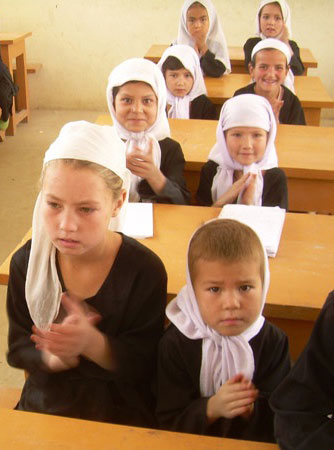
However, improving access to education for girls and boys, and increasing literacy rates, is a priority of the new Ministry of Education, and substantial progress has been made over the last decade. For example, during the Taliban rule, less than one million children, all boys, attended school. Today, this has increased to about ten million students, of which 40% are female. And the literacy rate has more than doubled—from 15% in 2003, to 36% in 2013, and the Ministry of Education has set the goal at 50% by the end of 2018.
Despite these improvements over the past decade, there are still many areas of the country without schools, and in rural Northern Afghanistan, the terrain and harsh winters make it difficult for children to attend schools that are far from home. In such areas, the Ministry of Education seeks to establish public-private partnerships to build new schools and increase access to education. This is where Barakat comes in.
Barakat works closely with the Ministry of Education to manage Barakat’s schools and curriculum in Northern Afghanistan. In the 2013-2014 academic year, our schools’ total enrollment rate was 1535 students. And, because Barakat’s schools are private, they have the advantage of more flexibility in their curriculum than public schools. For example, historically, education in Afghanistan consisted of learning to read the Quran, while everything else was considered higher education. Now, public schools teach languages and history in addition to the study of Islam, but Barakat schools, by comparison, offer classes in English, math, science, and computer science.
Even with these new schools in Northern Afghanistan, there are still girls who do not attend because their families are reluctant to let their daughters travel away from home or attend school with boys. Also, many adult women who were unable to attend school as children are now too old to enroll. To address this unmet need, Barakat established a literacy program in Northern Afghanistan with no age limit for females. And for the lower-level literacy students, classes are often taught in the students’ homes, which has allowed Barakat to reach teenage girls, married women, and grandmothers. The higher-level program is run in a school-like setting, with the location adapting to the needs of its students. All told, 628 students participated in Barakat’s literacy program in 2013-2014.
Despite these excellent advances, there is still a long way to go in providing accessible education for children in Afghanistan. A Ministry of Education that supports female education is a critical first step, but the lingering influence of the Taliban and their attacks against schools remains a large challenge for continued improvement. Nonetheless, Barakat continues to institute new ways of delivering high-quality education to girls and women that are convenient and safe.
Support the education of girls and women in Afghanistan by making a donation to Barakat’s schools and literacy program this holiday season. Please click here for more information.
[1] According to the United Nations Development Programme.

